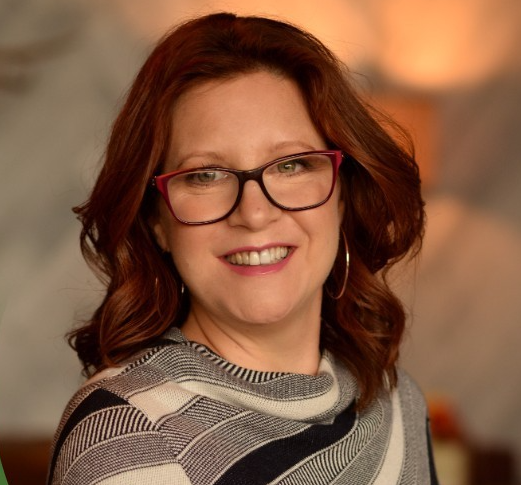7 No-Nonsense Ways to Deal With Flashbacks in Recovery



April Wilson Smith, MPH, is a PhD student in Population Health at Thomas Jefferson University in Philadelphia. Her research focuses on harm reduction approaches to people who use substances when they enter the healthcare system.




April Wilson Smith, MPH, is a PhD student in Population Health at Thomas Jefferson University in Philadelphia. Her research focuses on harm reduction approaches to people who use substances when they enter the healthcare system.
Angie, like a lot of us, used drugs and alcohol to medicate the things in life that hurt. About three months into her sobriety, the flashbacks started to hit.
By definition, flashbacks are sudden and disturbing vivid memories of an event in the past, typically the result of psychological trauma. They make you feel like you’re reliving a past traumatic experience all over again. It literally feels like you’re there. Your heart races. You can’t seem to get back to the present place and time.
The Past Doesn’t Have to Haunt You
When you surrender power to your flashbacks, it’s easy to feel out of control – it’s even easier to slip into a dark place of guilt and depression. Let’s talk about how Angie dealt with the flashbacks while maintaining her sobriety and how you can apply these tips to your own recovery plan:
1. Keep Cool and Meditate
Angie took deep breaths as the flashbacks hit and simply kept meditating. It worked. She doesn’t meditate in any fancy way; she just uses an app on her phone. But she makes time every day to practice meditation.
2. Ask for Support
Angie had been too afraid to reach out and ask for help before. Now she has a list of women she can count on, and when she needs support, she calls – she literally makes herself. When the flashback panic sets in, she no longer isolates; she knows isolation only brings on more fear.
3. Exercise
Angie doesn’t do any kind of elaborate exercise to combat flashbacks. She just walks, but she walks about an hour each day. When she walks, she feels okay. When she doesn’t, she can feel the fear creeping back in.
4. Seek Professional Help
This is a big one for Angie. After what felt like an exhaustive search, she finally found the therapist she needed. Someone she can trust. Someone who’s trained in trauma. Having her therapist’s support is a huge weapon in her anti-flashback arsenal.
5. Stay Focused on the Here and Now
It took some work, but Angie finally realized that, no matter what happened in her past, she’s safe here and now. When the guilt of the past tries to creep into the present, Angie looks at the wall. She looks at the furniture. She tells herself, "you’re here now, not back there where the bad things happened."
6. Make Schedules and Stick to Them
These days, Angie swears by schedules and routines. She makes a standard time to go to bed and wake up. She makes standard times to workout and go to work. Just like the environment of rehab is built around structure and routine, keeping things on a schedule at home will help repel negative flashback effects.
7. Face Down the Danger
There comes a time in everyone’s life when they have to face their fears. Everyday, Angie felt as if danger was chasing her. As the flashbacks came, all she wanted to do was run away – until she made the decision to face them down. It’s a choice that changed her life for the better. She started working with a trauma therapist. She learned how to reenvision her experience. Today she sees herself as a strong, determined, and capable woman, not as a victim.
Getting Professional Support for Trauma and Addiction
If you're dealing with flashbacks and need professional support, you don't have to face this alone. Many treatment programs specialize in trauma and addiction recovery, offering therapists trained in both areas. Explore addiction treatment centers to find a program that addresses the root causes of your substance use and helps you truly heal.
Our Promise
How Is Recovery.com Different?
We believe everyone deserves access to accurate, unbiased information about mental health and recovery. That’s why we have a comprehensive set of treatment providers and don't charge for inclusion. Any center that meets our criteria can list for free. We do not and have never accepted fees for referring someone to a particular center. Providers who advertise with us must be verified by our Research Team and we clearly mark their status as advertisers.
Our goal is to help you choose the best path for your recovery. That begins with information you can trust.














